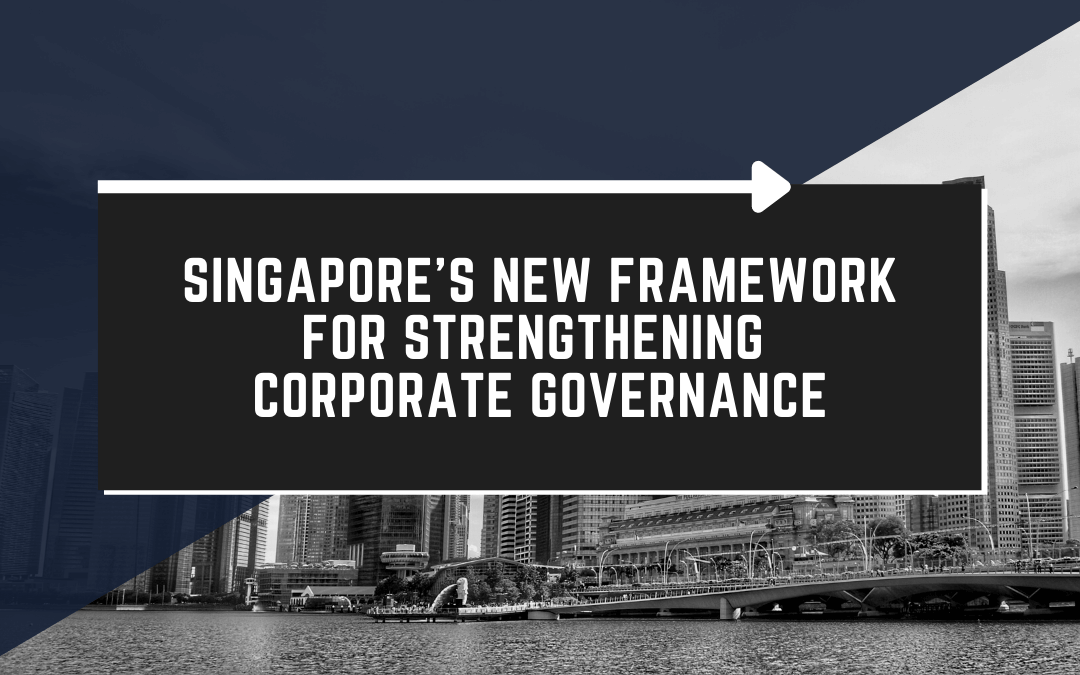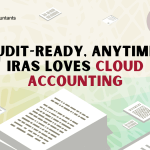Singapore has just announced that it has released two new tax frameworks to help companies improve their tax compliance, as announced by the Inland Revenue Authority of Singapore (IRAS) on March 18th.
These are the Tax Governance Framework (“TGF”) and the Tax Risk Management and Control Framework for Corporate Income Tax (“CTRM”). Companies can apply these new tax management frameworks to both the Corporation Income Tax (CIT) and Goods and Services Tax (GST), and benefit from longer grace periods and waivers by committing to good tax governance.
Here are the differences between the two:
Tax Governance Framework (TGF)
Tax Governance Framework (TGF) aims to elevate tax governance standards to the board of directors of a company. It features a set of broad principles and practices around three main building blocks of good tax governance: compliance with tax laws, governance structure for managing tax risks and relationship with tax authorities. The framework is applicable to both Corporate Income Tax (CIT) and Goods and Services Tax (GST), and can be adopted by any company willing to commit to good tax governance. Companies that attain the TGF status can enjoy a longer grace period for voluntary disclosure of tax errors:
(i) A one-time extended grace period of two years for voluntary disclosure of CIT and/or withholding tax errors made within two years from the date of award of TGF status.
(ii) For a GST-registered business accorded ACAP status, a one-time extended grace period of three years for voluntary disclosure of GST errors made within two years from the date of award of TGF status; or for a GST-registered business without ACAP status, a one-time extended grace period of two years for voluntary disclosure of GST errors made within two years from the award of TGF status.
Tax Risk Management and Control Framework for Corporate Income Tax (CTRM)
Targeted at large companies with complex structures and business models, the CTRM guides these companies in establishing robust internal controls and processes to identify, mitigate and monitor key CIT risks. The framework comprises a self-review checklist featuring processes and measures that would demonstrate that sound controls – i.e., the tax governance structure, entity-level controls and tax reporting controls – are in place to manage tax risks. Eligible companies that attain the CTRM status will enjoy these benefits:
(i) A one-time waiver of penalties for voluntary disclosure of prior years’ CIT and/or withholding tax errors.
(ii) Step-down on CIT compliance audit for three consecutive Years of Assessment from the date IRAS awards the CTRM Status.
“While the TGF, CTRM and GST ACAP are voluntary compliance initiatives that operate independently, we strongly encourage companies to adopt all three frameworks to ensure proper internal controls and systems are in place to manage their tax risks. By doing so, companies will give confidence to their stakeholders that they are effective in managing tax risks and transparent with their tax matters, as well as enjoy lower compliance costs in the long run. IRAS will continue to work closely with companies to enable them to build a sustainable infrastructure that supports voluntary compliance,” said Mr Ng Wai Choong, Commissioner of Inland Revenue/Chief Executive Officer.
Should you need to apply for TGF status or any other tax framework, please do not hesitate to contact our success team at success@ebos-sg.com or call +65 8157 0970 to get in touch with us directly.







